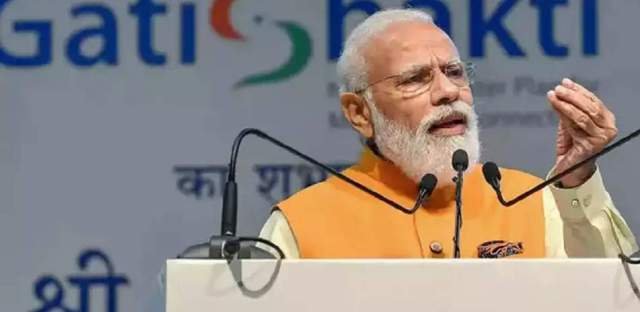Urging the private sector to invest in the country’s infrastructure, Prime Minister Narendra Modi on Monday outlined how the Gati Shakti project will reduce compliance burden and bring down the time and cost overrun of projects.
Addressing a post-budget webinar on the vision of Gati Shakti, the prime minister asked the private sector to use data on existing and proposed infrastructure besides forest and industrial estate available in the National Master Plan for their planning.
“In PM Gati-Shakti National Master Plan, more than 400 data layers are available now…not just the existing and proposed infrastructure but also information about the forest land and available industrial estate…the private sector should use it more and more for their planning,” he said. The PM added that all important information regarding the National Master Plan was now available on the single platform. “Due to which it will be possible to get project alignment and various types of clearances at the DPR (detailed project report) stage itself. This will also be helpful in reducing your Compliance Burden”, he said.
PM Gati Shakti will ensure true public-private partnership in infrastructure creation from infrastructure planning to development and utilization stage, PM added.
The PM also asked the state governments to make the PM Gati-Shakti National Master Plan as base for their projects and economic zones. Underlining the lack of coordination among the stakeholders in the traditional ways of completing projects, Modi said that PM Gatishakti, will also lead to optimum utilization of the country’s resources as everyone will be able to make their plan with complete information. He added that ‘Infrastructure-based development’ will lead to an extraordinary increase in the strength of India’s economy, creating many new possibilities of employment.
The government has made a ₹7.5 trillion capital allocation in the budget for 2022-23, as against ₹5.54 trillion last year. “Infrastructure Planning, Implementation and Monitoring will get a new direction from PM Gati-Shakti. This will also bring down the time and cost overrun of the projects”, he added. Of the ₹7.5 trillion capital allocation, ₹1 trillion will be allocated to states for development of infra projects. “State governments will be able to use this amount on multimodal infrastructure and other productive assets,” he said.
Modi pointed out that India’s logistic cost in India is considered to be 13-14% of GDP, more than other major countries. He added that the Unified Logistic Interface Platform (ULIP) provided in this budget will lead to reduced logistics cost. “24 Digital Systems of 6 Ministries are being integrated through ULIP. This will create a National Single Window Logistics Portal which will help in reducing the logistics cost,”, he added.

